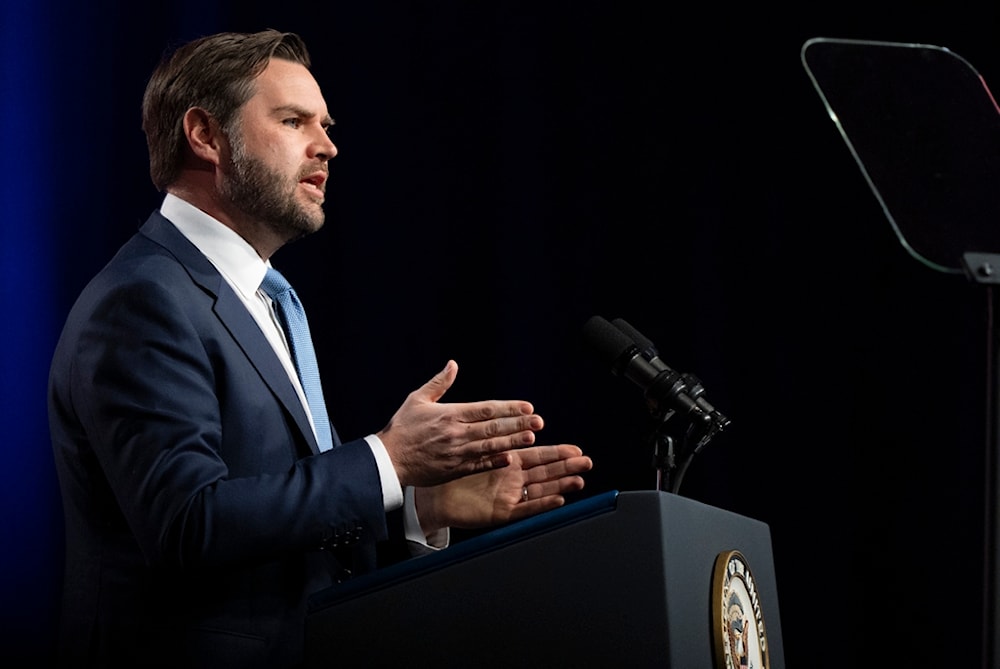JD Vance dismisses 2028 speculation, defends Trump economic agenda
Vice President JD Vance downplayed 2028 election speculation while backing President Trump's controversial trade and tax policies, which have triggered global backlash, market turbulence, and warnings of economic fallout.
-

Vice President JD Vance speaks at the Congressional Cities Conference of the National League of Cities on Monday, March 10, 2025, in Washington (AP Photo/Mark Schiefelbein)
US Vice President JD Vance said Thursday that he is not currently considering a run for the presidency in 2028, stating that any future decisions will be made in close consultation with President Donald Trump.
"I really am just not focused on politics, I'm not focused on the midterm elections in 2026, much less the presidential election in 2028. When we get to that point, I'll talk to the president, we'll figure out what we want to do," Vance told Fox News.
His remarks come amid growing speculation about Trump's succession plans, particularly after the president recently said it was "too early" to say whether he views Vance as his heir apparent. That speculation has intensified further following Trump's own claim last week that he is "not joking" about potentially seeking a third term—despite the constitutional two-term limit under the 22nd Amendment.
As speculation over political futures continues, Vance has turned his attention to the administration's economic platform, defending a bold new combination of tariff measures and tax relief. He insisted the two elements are mutually reinforcing in their goal to revive domestic manufacturing and support working-class Americans.
"So yeah, we're going to cut your taxes. You're going to have more money in your pocket, and that's, of course, going to help you deal with the cost of inflation, but that's not about offsetting the tariffs, they work together. We want to penalize people for shipping our jobs overseas, we want to reward hardworking Americans. It's all part of the same policy," he explained.
Tariff Turmoil
His defense came a day after President Trump signed an executive order establishing a 10% base tariff on all imported goods, effective April 5. A second wave of reciprocal tariffs targeting countries with significant trade surpluses with the US will go into effect April 9. The administration has also announced a crackdown on the "de minimis" rule, ending duty-free exemptions for low-value goods from China and Hong Kong as of May 2.
The economic shake-up, dubbed "Liberation Day" by Trump, has already triggered a swift international response. China and the European Union condemned the tariffs and pledged to impose their own countermeasures if diplomatic negotiations fail. EU Commission President Ursula von der Leyen warned that the impact "will be dire for millions of people around the globe," while Beijing accused Washington of dismantling years of hard-won multilateral trade cooperation.
Read more: Trump tariffs spark trade war, China and EU retaliate
Markets reacted sharply to the policy rollout. The US dollar dropped against major currencies, stock indices slid, and investors turned to gold, driving prices above $3,100 per ounce as concerns over inflation and global economic stability intensified.
While critics argue the tariffs could fuel price increases and slow growth, the White House maintains that the combined effect of trade penalties and tax relief will reshape global supply chains and strengthen the domestic economy.
For now, Vance's focus remains aligned with Trump's vision—an aggressive economic agenda allegedly designed to reward American workers and reassert US leverage in global trade.

 3 Min Read
3 Min Read










